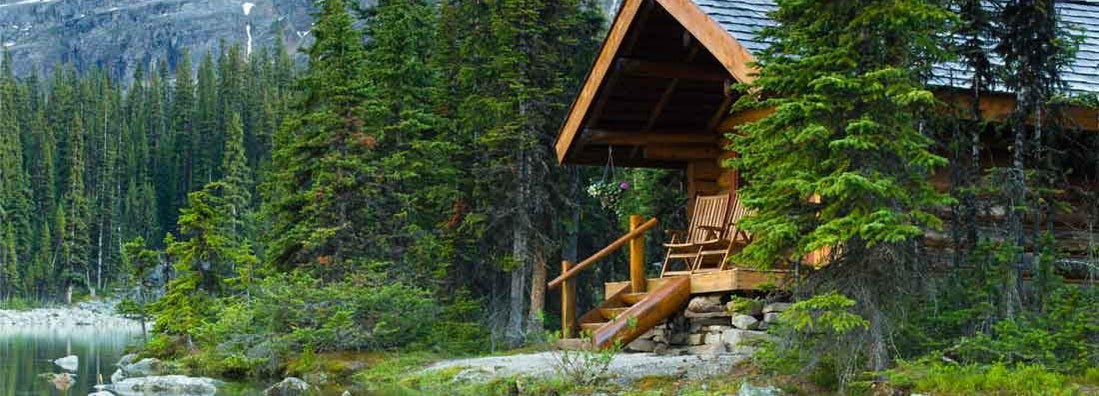[et_pb_section fb_built=”1″ _builder_version=”4.0.9″][et_pb_row _builder_version=”4.0.9″][et_pb_column type=”4_4″ _builder_version=”4.0.9″][et_pb_text _builder_version=”4.0.9″ hover_enabled=”0″]
Purchase Land Insurance for Undeveloped Property
[/et_pb_text][/et_pb_column][/et_pb_row][et_pb_row _builder_version=”4.0.9″][et_pb_column type=”4_4″ _builder_version=”4.0.9″][et_pb_text _builder_version=”4.0.9″]

You may be leaving your parcel of land undeveloped for a number of reasons. Maybe one day you plan on building a summer cabin or retirement retreat, or maybe you use the land to hunt and fish. No matter what your vacant land is used for, you might want to consider insuring it against certain risks.
The Basics of Vacant Land Insurance
- If you own your property outright, you are not required by law to buy land insurance; however, in the event of a lawsuit this coverage will be essential
- If your property is financed, your lender may require land insurance
- Vacant land cannot have any existing structures
- Hunting land insurance is important if your land is used for sport
What Is Land Insurance?
Land insurance is a form of property coverage that will cover a claim of bodily injury or property damage if someone has an accident on your property and you are found to be at fault. If someone files a lawsuit against you, it will also help to cover your legal fees.
While it cannot cover any damage that happens to your land, it will protect you financially if others are ever on your property. To decide whether this type of insurance is important for you, consider your risks and talk with a knowledgeable agent.
The easiest way to add land insurance is through your homeowner’s policy. If you own a home, you can typically extend your liability coverage to include your vacant land. If you have an umbrella liability policy, be sure to add your vacant land to that policy as well, and update your liability if needed.
Hunting Land Insurance
If you plan on using your property for hunting and allow others use it as well, it’s very important to purchase property insurance. Because of the risks involved in hunting and use of firearms, you have a greater risk for liability concerns.
As a responsible landowner, you should inform all hunters of any perils they should know about that may exist on your property, such as cliffs, abandoned wells, or barbed wire fences.
Sharing this knowledge is one important way to help cover your liability risks, but it is still important to have liability insurance coverage in place as well.
Some insurance companies require landowners to make hunters sign a waiver absolving the landowner of any wrongdoing. While this won’t protect you from all potential lawsuits, it can provide a safety net that otherwise wouldn’t exist.
Some hunters may ask to use all-terrain vehicles on your property, and it is important to realize that you will assume additional liability risks if you allow it.
If an accident happens on your property, you can potentially be held responsible – especially if there are features in the natural landscape that pose a risk.
What Vacant Land Insurance Does Not Cover
If you have any kind of structure on your land, even if it is temporary, your land is no longer “vacant” and will not be covered by vacant land insurance. If you decide to start constructing a building on your formerly vacant land, the land insurance will be void for that structure.
You will need to purchase additional property insurance to cover any outbuildings or dwellings. Even you have an old dilapidated structure on your property that has been empty for many years, your land is not considered vacant property.
And if someone is injured inside an abandoned building on your property, your land insurance liability will not cover it. Ask your insurance agent how to protect yourself against claims that are related to abandoned buildings.
[/et_pb_text][/et_pb_column][/et_pb_row][/et_pb_section]